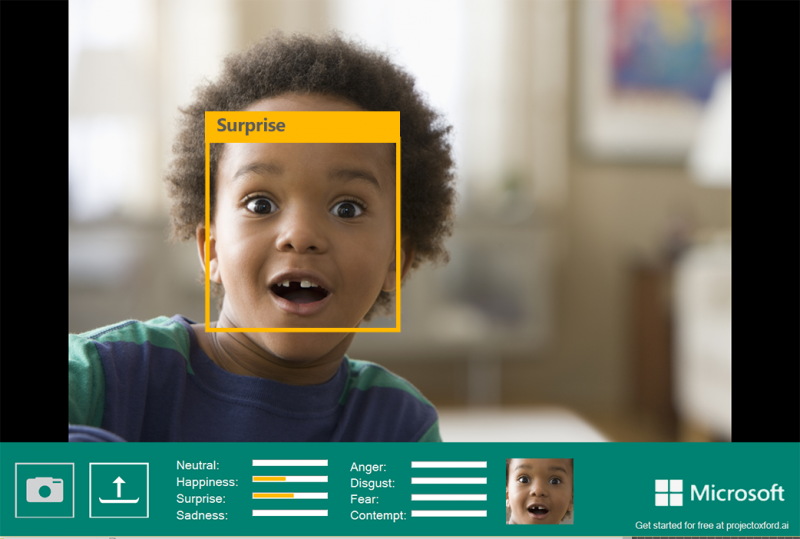
Earlier this year, Microsoft introduced its ‘How Old’ facial recognition tool which managed to both amuse and outrage in equal measure. Now, the company has revealed a similar piece of software that tries to work out what emotions a person is displaying in a photo, rather than their age.
The team behind Microsoft’s Project Oxford, a set of developer tools based on machine learning and Artificial Intelligence, announced the public beta release of the emotion detection technology at the company’s Future Decoded event in London.
The tool trains computers to recognize eight core emotions: anger, contempt, fear, disgust, happiness, neutral, sadness and surprise. You can try it out by uploading a JPEG, GIF, PNG, or BMP under 4MB in size at this site. Microsoft says using near-frontal or full-frontal facial picture will give the most accurate results, and that the system is able to recognize up to 64 different faces.
"Humans have traditionally been very good at recognizing emotions on people's faces, but computers? Not so much. That is, until now,” Microsoft said in a blog post.
Announcing new #ProjectOxford APIs, including emotion, video and spell check: https://t.co/ZWcshCRhNq #FutureDecoded pic.twitter.com/NXkLYcyFfL
— Microsoft Developer (@msdevUK) November 11, 2015
Ryan Galgon, a senior program manager within Microsoft’s Technology and Research group, suggested that developers could use the emotion tool to create systems for marketers to gauge people’s reactions to a store display, movie or food. It could also be used in consumer products, such as messaging apps, in order to offer up different options based on what emotions are recognized in a photo.
Much like Microsoft’s ‘guess your age’ tool, the emotion recognition technology isn’t always totally accurate. Registering each emotion on a scale of zero to one, it works best with obvious facial expressions, such as a huge grin, rather than more subtle or mixed ones. It is worth pointing out, however, that the Emotion API is designed to become smarter as it receives more data.
In addition to the emotion recognition technology, Microsoft is releasing public beta versions of several other Project Oxford developer tools by the end of the year. This includes a spell checker that can recognize slang words, video analyzing software that can track faces, improved speech recognition tools, and updates to existing facial recognition programs (including the age estimator) so they can better identify elements such as facial hair.
https://www.techspot.com/news/62760-after-trying-predict-age-microsoft-has-introduced-new.html
